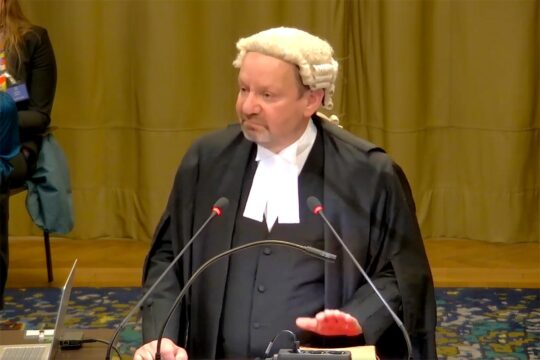Agathe Habyarimana was attending an appeal hearing before the Administrative Tribunal of Versailles, near Paris, after her second request for a residence permit in France had been rejected on May 4 by the prefecture of Essonne.
She had requested to be granted a permit for "private family reasons" on the grounds that three of her five children had French nationality and were living in France. Her demand was rejected, the Prefecture of Essonne arguing that her presence on French soil represented "a threat to public order".
Rwanda's former First Lady has been mainly living in France since she was evacuated on a French plane from Kigali on April 9, 1994, three days after the beginning of the Rwandan genocide.
All parties agreed on Tuesday that the question of Mrs Habyarimana's right to stay in France was a "highly political issue", even more so one week before President Kagame's first official visit to Paris, slated for September 12 and 13.
"This case is politically sensitive and historically tragic but, however you look at it, the decision of the prefet doesn't make any sense", Agathe Habyarimana's lawyer Philippe Meilhac told the court.
"We know that the ICTR is not going to try her. We know that Rwanda will not be able to try her as in all likelihood she will not be extradited", he added. "In other words, for those who want to see her stand trial, and for her who wishes to appear so the truth will be revealed, the only chance of a criminal procedure is for her to be judged in France".
Indeed, in another proceeding, France based victims' organization Collectif des parties civiles pour le Rwanda (CPCR) brought a case against Agathe Habyarimana in 2007 for "complicity in genocide and crimes against humanity". On March 10, 2010, Mrs. Habyarimana was questioned as a witness in relation to this case. So far, no charges have been retained against her.
"Since her arrival in France, Mrs. Habyarimana has never made noises about her presence here", Philippe Meilhac insisted. "I don't see how she could be considered a threat to public order".
In a brief intervention, a representative from the prefecture of Essonne made three main points without elaborating. The first restated its stance: "The state has refused to grant her the right to stay due to threat to public order". The second gave assurances to the court: "She [Mrs. Habyarimana] can't possibly be sent back by force to Rwanda". The third point summed up the ambiguities of the Prefecture's position: "Her presence in France represents a threat which would be aggravated if she were granted a legal right to stay".
No expulsion but also no residence permit, suggested the Prefecture while the Defence urged to clarify Agathe Habyarimana's situation so she could "end her days in France with her children".
The Administrative Tribunal is expected to render a decision on September 20.
FP/GF
© Hirondelle News Agency



